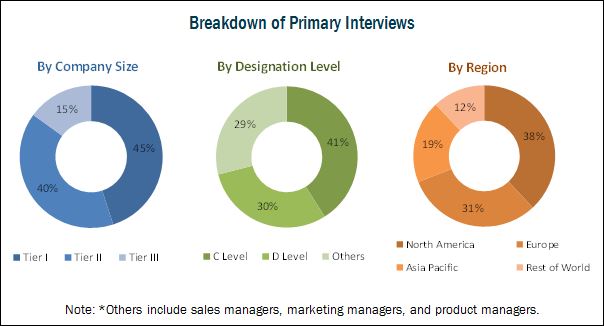The medical device reprocessing includes cleaning, disinfection, inspection, sterilization, and repackaging of used medical devices for its reuse to diagnose and treat multiple patients.
MarketsandMarkets forecasts The global medical device reprocessing market is projected to be valued at USD 823.5 Million in 2017 and is expected to grow at a CAGR of 16.3% during the forecast period to reach to USD 1,754 Million by 2022.The key factors driving the growth of this market include the low prices of reprocessed devices as compared to new ones and the pressure to reduce the volume of medical waste generated. hindering market growth.

The growth of this market is majorly driven by the increased utilization of the low priced reprocessed medical devices as compared to new devices, increased efforts towards reducing regulated medical waste (RMW), and rising number of surgical procedures associated with the growing prevalence of chronic diseases. However, the risk of transmission of surgical site infections associated with the use of reprocessed devices may hinder the growth of the market to a certain extent.
The reprocessing practices are regulated by various regional regulatory authorities. The changing regulatory scenario favoring medical device reprocessing in a number of countries, such as France and Japan, will open up new areas of opportunity for market players. For example, till 2016, the outsourcing of medical device reprocessing was prohibited in France; however, the European Union (EU) Regulations (Article 17), released on April 5, 2017, mandated the use of third-party reprocessing services by all French hospitals.
Download PDF Brochure @ https://www.marketsandmarkets.com/pdfdownloadNew.asp?id=583
The report analyzes the market by product & service, type of medical device, application, and region. On the basis of product & service, the reprocessing support and services segment accounted for the largest share in 2016, owing to the increased adoption of third-party reprocessing services over in-house reprocessing services by hospitals, clinics, surgical centers, clinical pathologies, and other healthcare organizations.
Based on type of medical device, the catheters segment accounted for the largest share in 2016 and is expected to grow at the highest CAGR during the forecast period. The growth of this segment can be attributed to the increased utilization of reprocessed cardiac catheters, electrophysiology catheters, and diagnostic catheters in recent years.
Based on application, the market is further categorized into cardiology; gastroenterology, urology, and gynecology; arthroscopy and orthopedic surgery; and general surgery and anesthesia. In 2016, the cardiology segment accounted for the largest share of the market; this is primarily attributed to the increasing number of cardiology surgeries associated with the growing prevalence of cardiovascular diseases (CVD) across the globe.
Request for Sample Pages @ https://www.marketsandmarkets.com/requestsampleNew.asp?id=583
The major players in the global medical device reprocessing market are Stryker Corporation (U.S.), Johnson & Johnson (U.S.), Vanguard AG (Germany), Medline ReNewal (U.S.), Medtronic plc (Ireland), SteriPro Canada, Inc.(Canada), Pioneer Medical Devices AG (Germany), Vascular Solutions, Inc. (U.S.), HYGIA Health Services, Inc. (U.S.), ReNu Medical, Inc. (U.S.), SureTek Medical (U.S.), and Centurion Medical Products Corporation (U.S.).
Key Questions Addressed by the Report:
1. Who are the major market players in the bioinformatics market?
2. What are the growth trends and the largest revenue-generating region for bioinformatics?
3. How are bioinformatics products and services sold to customers?
4. What are the major segments in bioinformatics market?
5. What are the driving, restraining, opportunistic, and challenging factors for this market?
To speak to our analyst for a discussion on the above findings, click Speak to Analyst @https://www.marketsandmarkets.com/speaktoanalystNew.asp?id=583

